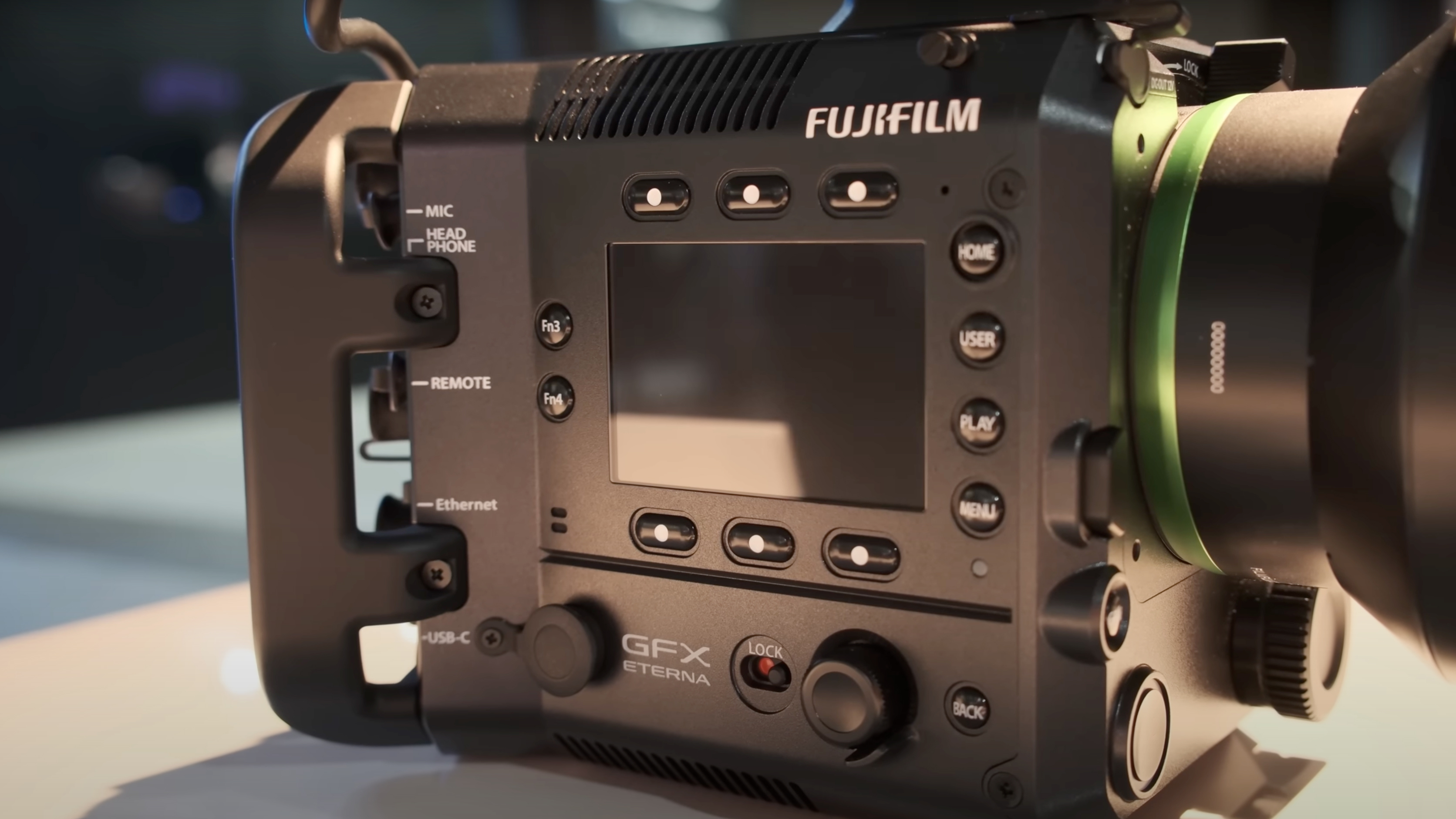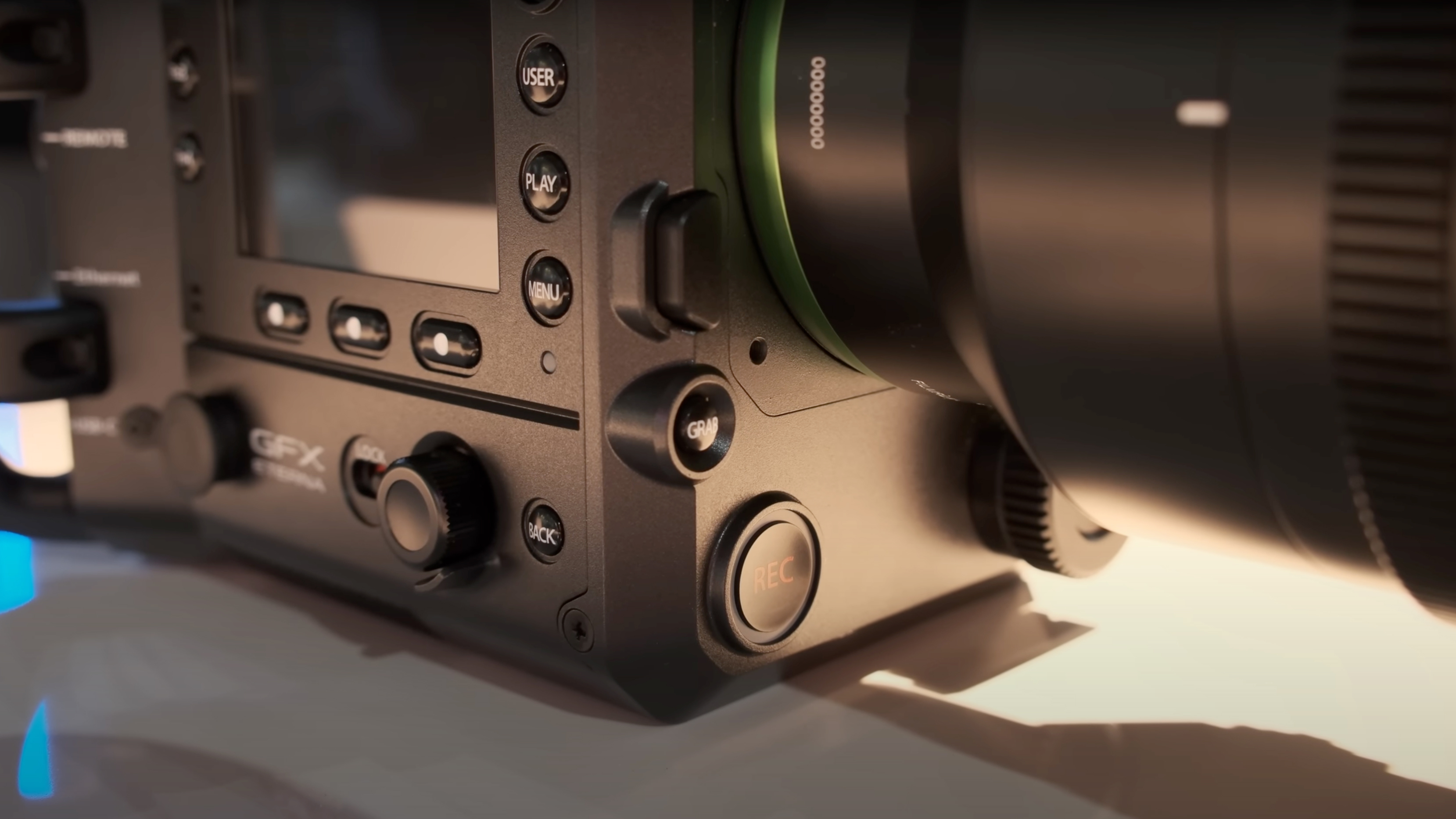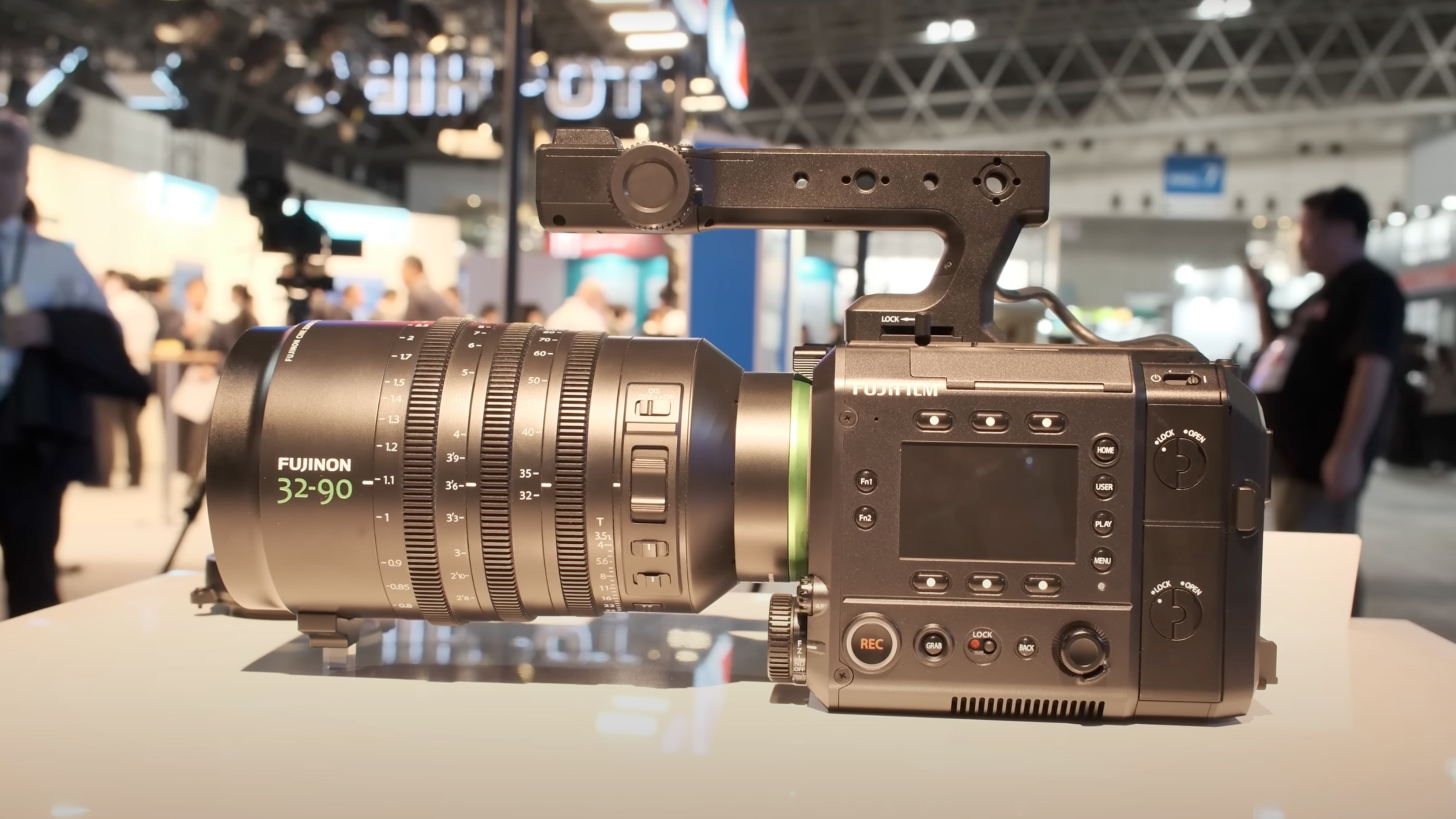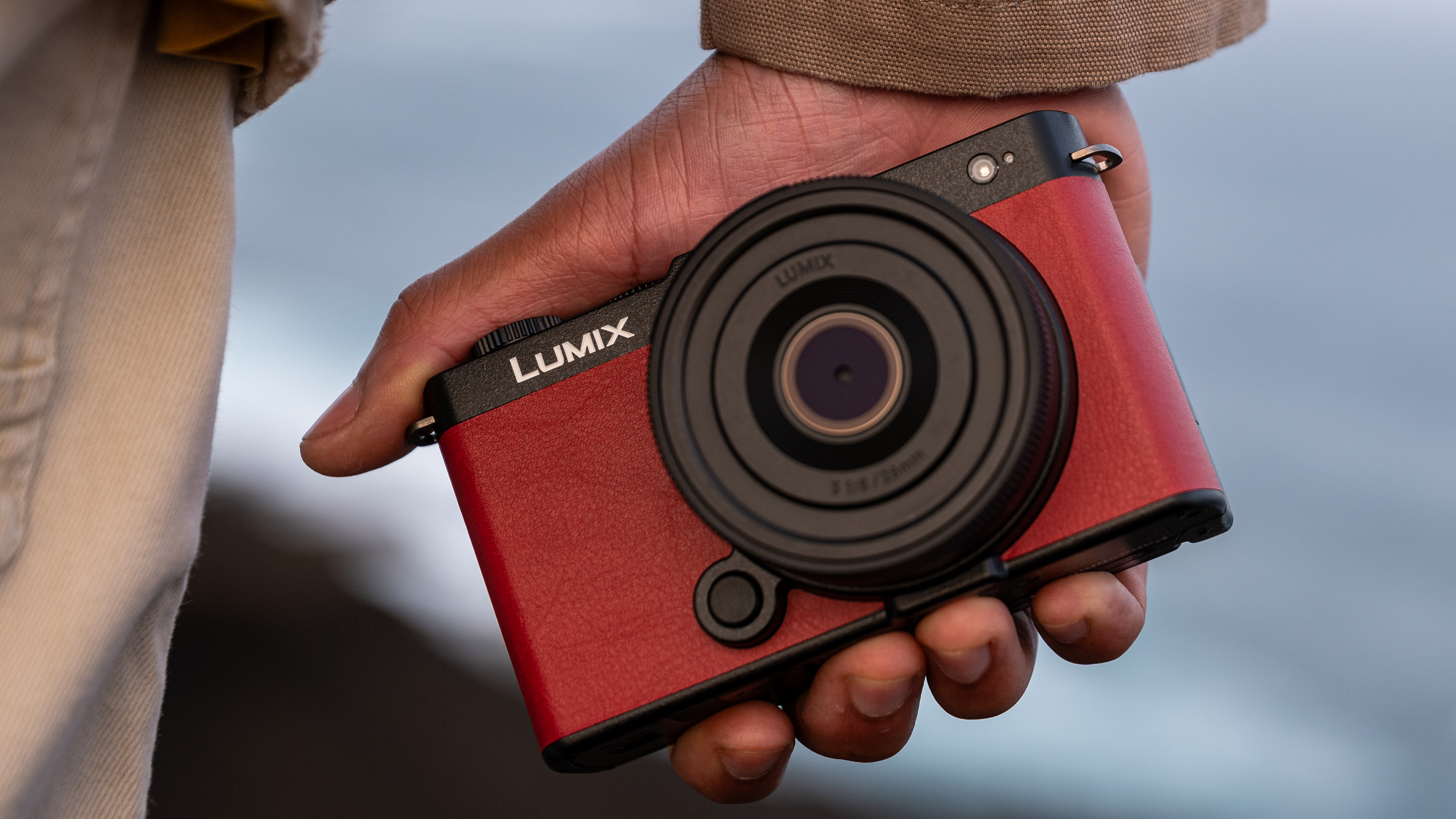Fujifilm shares more news on the GFX Eterna camera as it goes on display in Japan
An interview between CineD and Fujifilm showcases Fujifilm's first 'filmmaking' camera and provides insights into its development

Fujifilm shocked both the photography and video industries earlier this week by announcing that its first-ever cinema/filmmaking camera, the GFX Eterna, is in development and likely to hit shelves as early as 2025.
Since the announcment of the GFX Eterna, it has gone on public display at InterBEE (Broadcast Equipment Exhibition) 2024 – a large media event held in Japan from November 13 to 15. At the event, the YouTube channel CineD interviewed Fujifilm's product planner who provided further insights on the development of the new cinema camera.
In a discussion between Fujifilm's Makoto Oishi-san and CineD presenter Johnnie Behiri, it was revealed that the GFX Eterna has been in development for over 2 years. Due to incorporating the same system as the Fujifilm GFX 100 II which was released last year, the GFX Eterna was simultaneously being worked on however, was not at a stage to be revealed with its sibling, and is still technically in development.
The official press release for the Fujifilm GFX Eterna calls the camera a 'filmmaking' camera rather than a cinema camera, which at the time struck me as an interesting choice. Touching on this point and the differences between the two terms, Oishi-san says, "Our aim and the target is not only for cinema but filmmaking in general, including genres such as documentary [filmmaking]".
I can see the need to clarify this as often the term 'cinema' camera can be misleading when in actuality, there are many different types of cinema cameras, and not just for 'cinema'. I feel using the term 'filmmaking camera' is a smart move by Fujifilm as it opens up the idea of creating a wider range of videos and sounding like a better all-around option for the video market, especially to those who perhaps are new to video.

CineD also made sure to ask the question that was at the forefront of all of our minds – is the GFX Eterna just a rehoused GFX 100 II?
"The sensor and the processor are the same as the GFX 100 II, but as you can see the Eterna is more feature-designed [toward filmmaking] – the interface, monitors, size, and form of the body.", says Oishi-san.
Get the Digital Camera World Newsletter
The best camera deals, reviews, product advice, and unmissable photography news, direct to your inbox!
To summarise this point, from the information we have been provided so far the answer is yes. The GFX Eterna will have all the inner workings of the GFX 100 II including the same rolling shutter and 12-bit performance. However, the form factor and design lends itself to video, along with a brief mention of potentially adding further codecs.

The discussion also revealed more features that were previously unannounced such as the inclusion of an internal ND filter system adjustable via a control dial, a feature that is much desired in video cameras. Although the GFX Eterna has been compared to the Blackmagic Pyxis in form factor and similar dual monitors, the Pyxis does not have internal ND, perhaps a decisive factor when comparing the two cameras.
The GFX Eterna is expected to be in development into 2025 and due to this, pricing hasn't yet been confirmed, and almost certainly won't be revealed until the time of release.
An interesting point at the end of the interview was when the topic of lenses came up. Already announced is the development of a new Fujinon power zoom, but Oishi-san was specifically asked about the manual focus video lens which he says is possible depending on consumer feedback. This could open up the door to Fujifilm GF cine lenses – an exciting possibility!
Black Friday deals have started early including some great savings on Fujifilm equipment! See our Camera Black Friday Camera Deals hub to stay updated with savings!

Kalum is a professional photographer with over a decade of experience, also working as a photo editor and photography writer. Specializing in photography and art books, Kalum has a keen interest in the stories behind the images and often interviews contemporary photographers to gain insights into their practices. With a deep passion for both contemporary and classic photography, Kalum brings this love of the medium to all aspects of his work.

